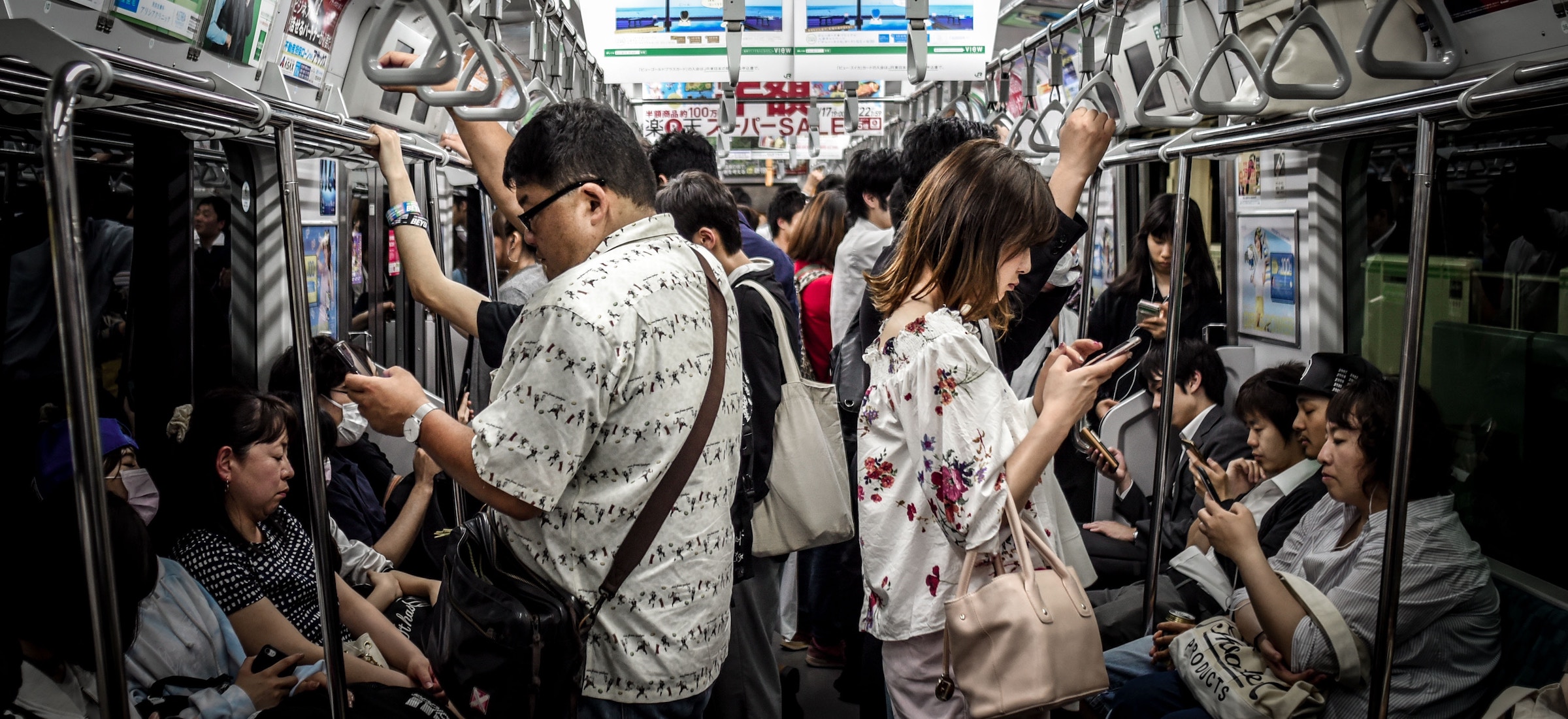It seems every time I walk into the crewroom everyone has their smartphone out in their hand. It’s almost as if either the conversation or the newspapers scattered around are really dull. It’s a bit of a running joke that my ‘smartphone’ is a bit of a brick from the dark ages. My phone isn’t that old; even though it only does text messages and, believe it or not, phone calls I still find myself checking it for text messages. At home I have two teenagers. They’re both wedded to their smartphones. One barely lifts his head from the screen watching Youtube films and sending and receiving messages.

I was on a Human Givens course recently talking about stress in youngsters and, in particular, students at university and college. The presenter was quite matter of fact when he said that devices with screens are an addiction. He talked about how he had to deal with students who were so addicted to their devices he had to work really hard to get them to leave them alone long enough to sleep and live a normal life.
Do you recognize any of that in yourself?
I’m currently doing a course in how to help addicts beat addiction. One of the things that makes beating an addiction difficult is if it is socially acceptable. If everyone else is doing it there doesn’t seem to be a problem, does there? Think back to the days when most people smoked and, indeed, hospitals used to give cigarettes to patients to help calm them down.
Addictions are normally the body’s way of short cutting the normal route to get a particular need met. For instance one of our needs is a sense of community. We need to be with other people but it’s daunting meeting a new group or reacquainting yourself with friends you haven’t been close to for a while. Lots of people like to drink to overcome the natural shyness they feel in company. Some, who become alcoholics, merely take this short-cutting too far, often because they suffer a crippling shyness or have some trauma in their background.
Smartphones are popular because they facilitate communication. Or at least that’s the myth. The communication available is more of a short cut: we don’t get the instant feedback that we get talking face to face (how often do you send a message and then pick your phone up almost immediately to see if you have had a reply); because we don’t get that feedback we don’t shackle our emotions so much (that’s why you get so many trolls and, indeed people sending pictures to everyone else about what they’re having for lunch); we fill up our time with needless communications (if you’re having such a nice time with the family why are you distracted enough to send a message to everyone else?); and we can boast without people being able to see the warts and all picture. This last point is the cause of so much angst, particularly amongst teenagers, as the brushed up image presented makes everyone else feel inadequate.

Lots of addictions lose their shine over time, particularly when people begin to realize how much ‘pain’ they’re getting to get the short term ‘hit’. It’s alarming how many of the things I enjoy doing gust towards triggering the addictive bits of my brain. Is the smart phone an addiction for you? Part one of overcoming an addiction is to recognize the damage it’s doing.
I’d love to hear your thoughts. Drop me a message on Facebook Inflow Performance or the group Breaking Free. Also have a look at my website Inflow Performance. I think the latter needs an update so I’d love to hear ideas for its improvement.
Jace